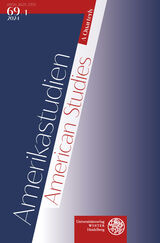Autor: Katja Sarkowsky
- «
- 1
- »
Die Suche erzielte 2 Treffer.
Transcultural Autobiography and the Staging of (Mis)Recognition in Edward Said’s ‘Out of Place’ and Gerald Vizenor’s ‘Interior Landscapes: Autobiographical Myths and Metaphors’ Beitrag open-access
- «
- 1
- »
